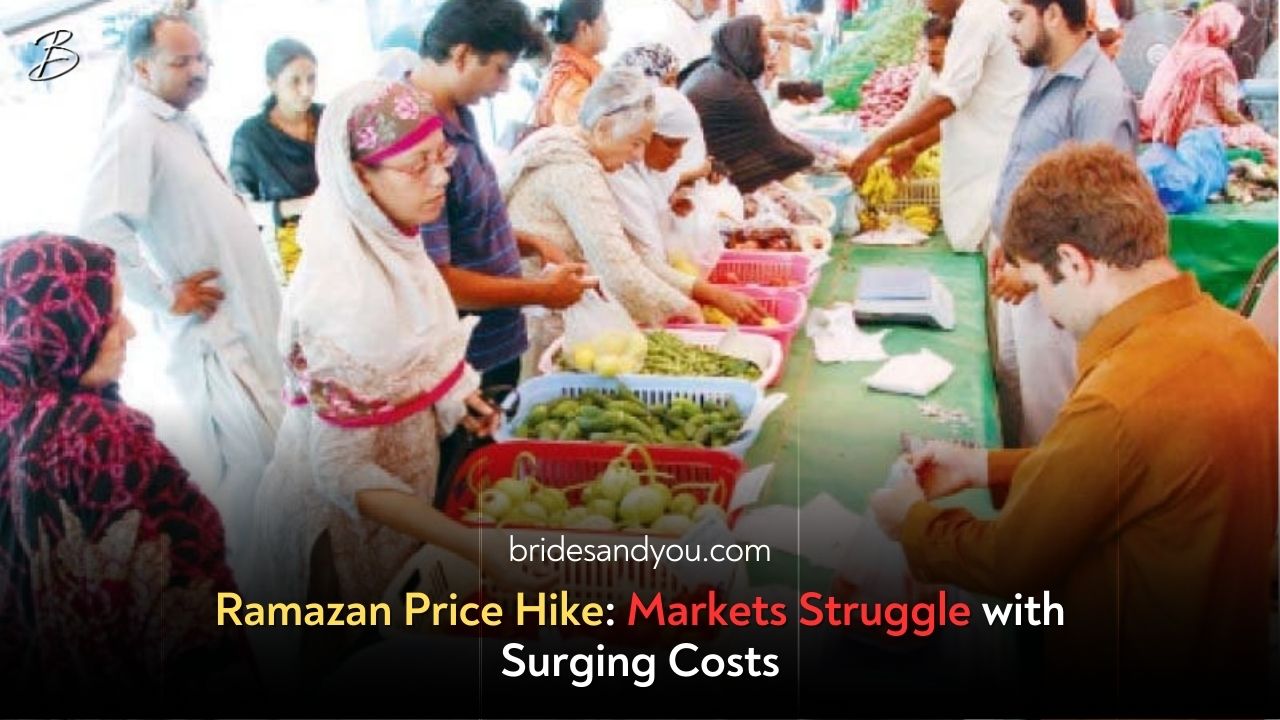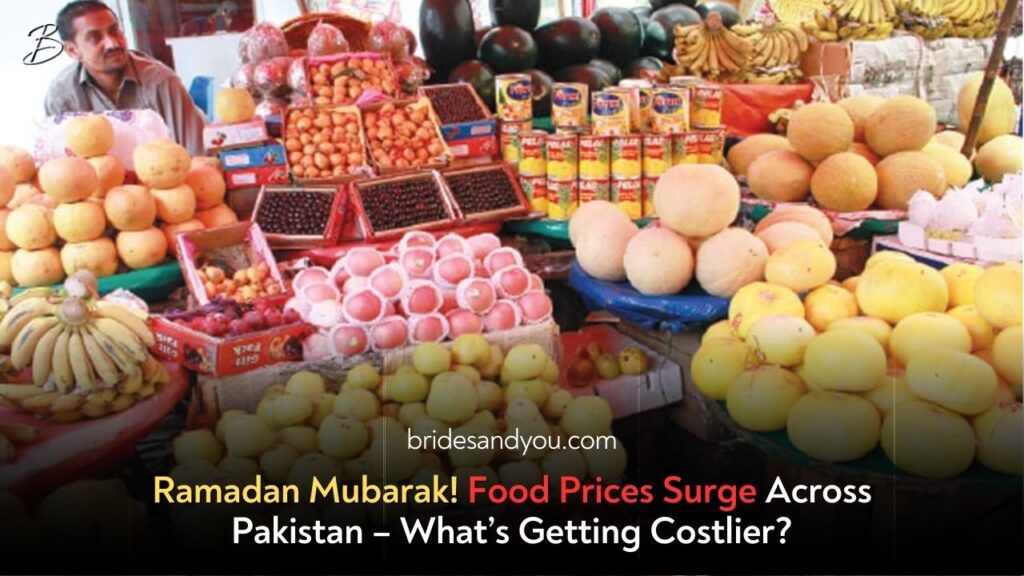Now Reading: Price Surge Hits Markets Ahead of Ramadan – Consumers Struggle with Rising Costs
-
01
Price Surge Hits Markets Ahead of Ramadan – Consumers Struggle with Rising Costs
Price Surge Hits Markets Ahead of Ramadan – Consumers Struggle with Rising Costs

Lahore: As Ramadan approaches, consumers across Punjab, particularly in Lahore and other urban centers, are experiencing a sharp increase in the prices of essential commodities. From fruits to sugar, the surge in prices has left many struggling to afford even the most basic food items for Sehri and Iftar.
Soaring Prices of Essential Commodities
Markets are witnessing steep price hikes, especially for Ramadan staples such as:
- Fruits: Dates, bananas, pomegranates, guavas, apples, and melons have all become significantly more expensive.
- Vegetables: Seasonal vegetables have also seen a price jump, making it challenging for lower-income families to prepare nutritious meals.
- Sugar: One of the most concerning price hikes has been in sugar, which remains at Rs130 per kg in government-designated spots but is selling at even higher prices in the open market.
The increasing demand for fresh produce in the weeks leading up to Ramadan has put additional pressure on already inflated market rates. While a new onion crop is expected to bring some relief, it may not be enough to counterbalance the overall surge in food prices.
Government Struggles to Implement Price Controls
Despite promises to regulate market rates, government officials are facing mounting challenges in controlling inflation. Price control measures appear largely ineffective as shopkeepers continue to charge arbitrary rates, leaving consumers with little choice but to pay higher prices.
Adding to the frustration, the Punjab government has yet to announce any plans for special Ramadan Bazaars, which in previous years provided essential goods at subsidized rates. The absence of fair-price shops and government-backed subsidies this year has left citizens fending for themselves against skyrocketing costs.
Voices from the Affected Public
Many consumers have voiced their frustration over the lack of government intervention.
Muhammad Arif, a daily wage worker, shared his struggles:
“Every year before Ramadan, prices go up, making it nearly impossible for people like me to afford even basic fruits and vegetables. Our wages don’t increase, but food prices always do.”
Similarly, Amina Bibi, a homemaker, criticized the authorities for failing to enforce price control measures:
“Shopkeepers charge whatever they want while the government remains silent. Ramadan is supposed to be a time of blessings, but for many families, it has become a financial burden.”
Looking Ahead – Will Relief Measures Be Introduced?
With just weeks left before Ramadan, the public is eagerly waiting for government initiatives that could ease the financial strain on families. The introduction of Ramadan Bazaars, subsidies, and effective price control mechanisms could make a significant difference for struggling consumers.
However, until concrete measures are taken, citizens will have to navigate rising costs on their own, hoping for some relief as the holy month begins.











